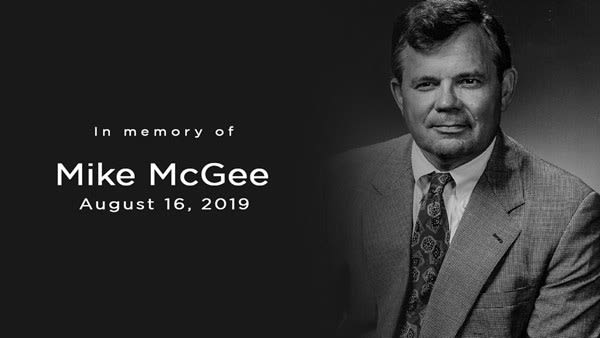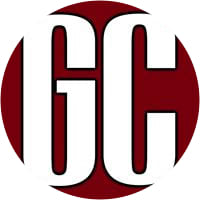Flashback: Part II of Q&A with former Gamecocks AD Mike McGee
With the news of former University of South Carolina athletics director Mike McGee's passing, GamecockCentral.com is republishing its multi-part interview with McGee that was conducted and originally published in July of 2014.
Below is an unedited copy of the final portion of the story.
If you missed Part I, click here.

Mike McGee served as Athletics Director at the University of South Carolina from 1993 until 2005. He played college football at Duke University, winning the 1959 Outland Trophy. After spending time with the St. Louis Cardinals, and served as head football coach at East Carolina and Duke. His career as an athletics director began at Cincinnati in 1979. From 1984 until 1993, McGee was AD at Southern California.
McGee, now 75, spoke at length with GamecockCentral.com about his career and specifically his time in Columbia. Following is an edited transcript of our conversation with him, exclusively for members of GamecockCentral.com.
GCC: "You brought Lou Holtz to Columbia. Tell me about that initial process and then what it was like to have him as the head coach of the Gamecocks."
Mike McGee: "Lou and I had a background. He was the coach at NC State, and I was at Duke. Dadgummit, we could tie him (Holtz) but couldn't beat him. It just so happened that Lou was available and he did a great job. I know some people that were critical of him. The players that played for him had tremendous respect. He did beat Ohio State in two successive bowl games. He retired and frankly would have liked to see his son in place.
With Lou coming in, he deserves great credit for what he did. You watch TV back early in my time there, and it was few and far between when South Carolina was on TV. People don't really understand. He turned the eyes of college football more on South Carolina then they had been perhaps ever. The television and the finances and all those kinds of things, it was important. Not just dollars, I'm talking about influence. I think folks saw that. We weren't on TV before, then we were on it all the time. Lou opened the door in so many areas for us in recruiting. We were on TV every Saturday once Lou came on board. The national interest with media, he became a little bit of their darling. I wouldn't say he was the darling of the Columbia newspaper or press, but that was just silly, a whole lot of that."
GCC: "When we initially spoke about talking for this feature, you mentioned that going to The White House in 2002 after Curtis Frye and the women's track team captured the national championship was something that you would always remember. Could you talk a bit more about that?"
MM: "Track was a sport that didn't get the attention that was due. I kind of did a little assessment before I accepted the job about what it would take. Where would we go? Where did we have untapped strengths? Our track program didn't have much of a history but there are a lot of great athletes in our area. It was one of those things (White House trip) where I wasn't sure if the players were more excited or I was. It was so well done. It was bright and cheerful personalities and was a team that was very close. They were products of a great coach. He is a great coach. Every year, he will have his teams like when I was there. We were challenging for the conference and NCAA. It was a lot of fun to see that program develop and it should always be good with that time of leadership."
GCC: "I want to ask you about the Colonial Center, now the Colonial Life Arena. It's a facility that has been the subject of a lot of discussion and also criticism over the years."
MM: "It didn't bother me a bit. The leadership in the university was positive. We had a really great president. This was a real opportunity. It was an opportunity for us to do something back for the city and alumni. The acoustics in the ceiling are built not for athletics, but for music. When those entertainers come there and see what the building sounds like, that's what is important. We built that with the idea that it would be a wonderful facility for basketball and equally for those being entertained it.
Jimmy Buffett came three straight years. He never did that. When I was at Southern Cal we added to the Coliseum, which is a place of heritage, and lowered the field. We had a track that had been used for the Olympics in 1984. There was no upper deck in the Coliseum. I caught all kinds of heat over that. It was still the right thing to do. There's a long, continuous row and it's like playing in the Grand Canyon. It brought people close to the field and they love it. Back then, there was an article a day about it about what McGee was doing. That all passed. It was a unique facility."
GCC: "What about those that say the Colonial Life Arena is too big for basketball?"
MM: "We used to fill it."
GCC: "The list of things accomplished by South Carolina athletics is lengthy. Three straight eleven-win seasons for football, an SEC title game appearance, back-to-back national titles for baseball, and on and on. Are you even surprised at the level of recent success?"
MM: "No. That's recognizing the enormous challenge of most sports in the SEC. The ACC is a great conference and those types of things, but the SEC is special."
GCC: "When you look back at your time at South Carolina, is there a thing or two that you can point to and say it's something that you are most proud of during your tenure?"
MM: "We've been moving some boxes with clippings and it's kind of fun to going back and thinking about it. I keep coming back to the people that worked there and the camaraderie and what a fun place it was to work. I'm not trying to be corny here, but the folks we worked with were great people and great fans. John Palms (former President), they didn't come any better than John Palms. We had really good staffs at Southern Cal and South Carolina, and I mean up and down. Lyles Glenn, he did most of the recruiting of the AD when I came there. He was the COO of the university, worked very closely with John Palms. "
GCC: "Is there anything you wish could have been done that did not get done for whatever reason?"
MM: "There were some things that made the job a little, things that were a little bit irritating at times, but that didn't spoil anything at the university and among the great fans and supporters. We had fun. I think most of them would tell you it was a fun place to work. It wasn't because of Mike McGee. There was a certain respect that starts that the top."


